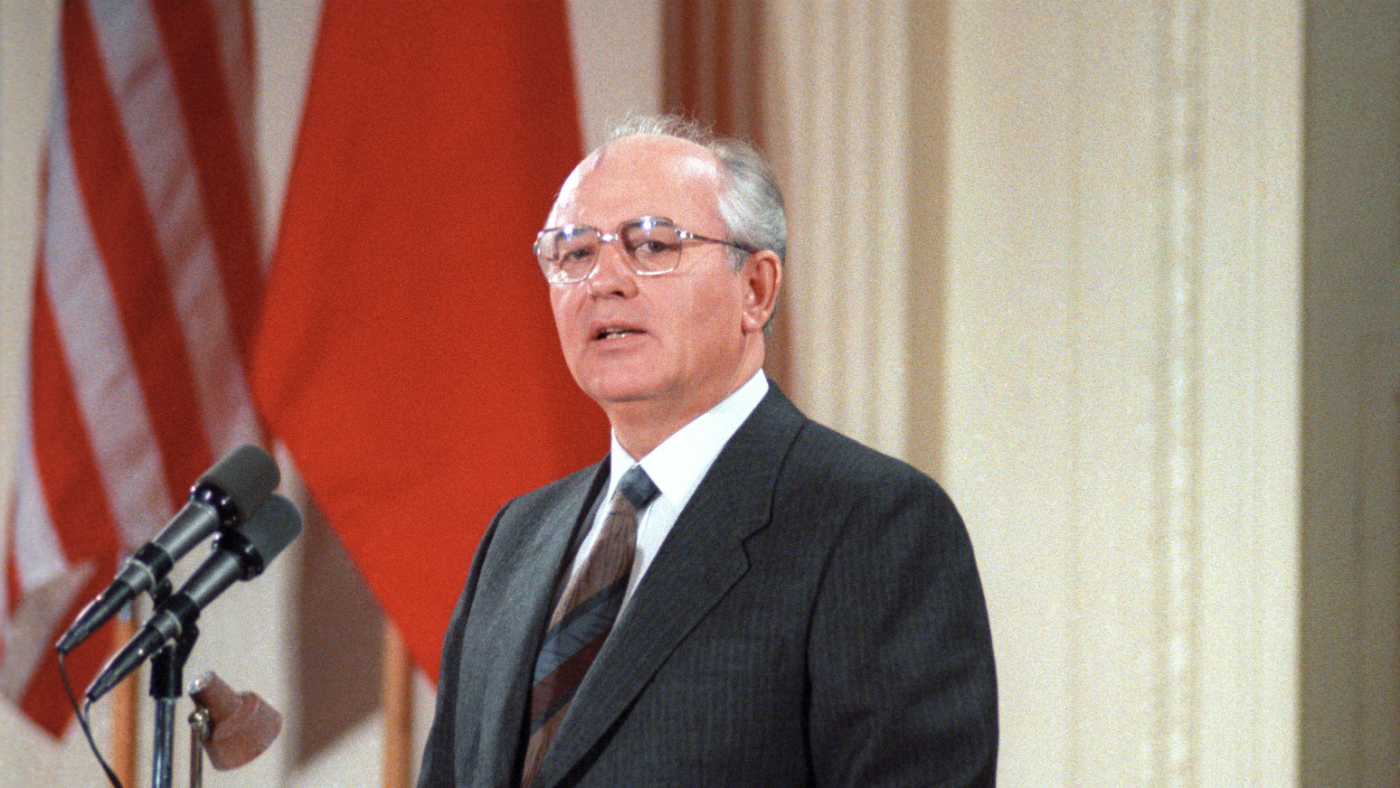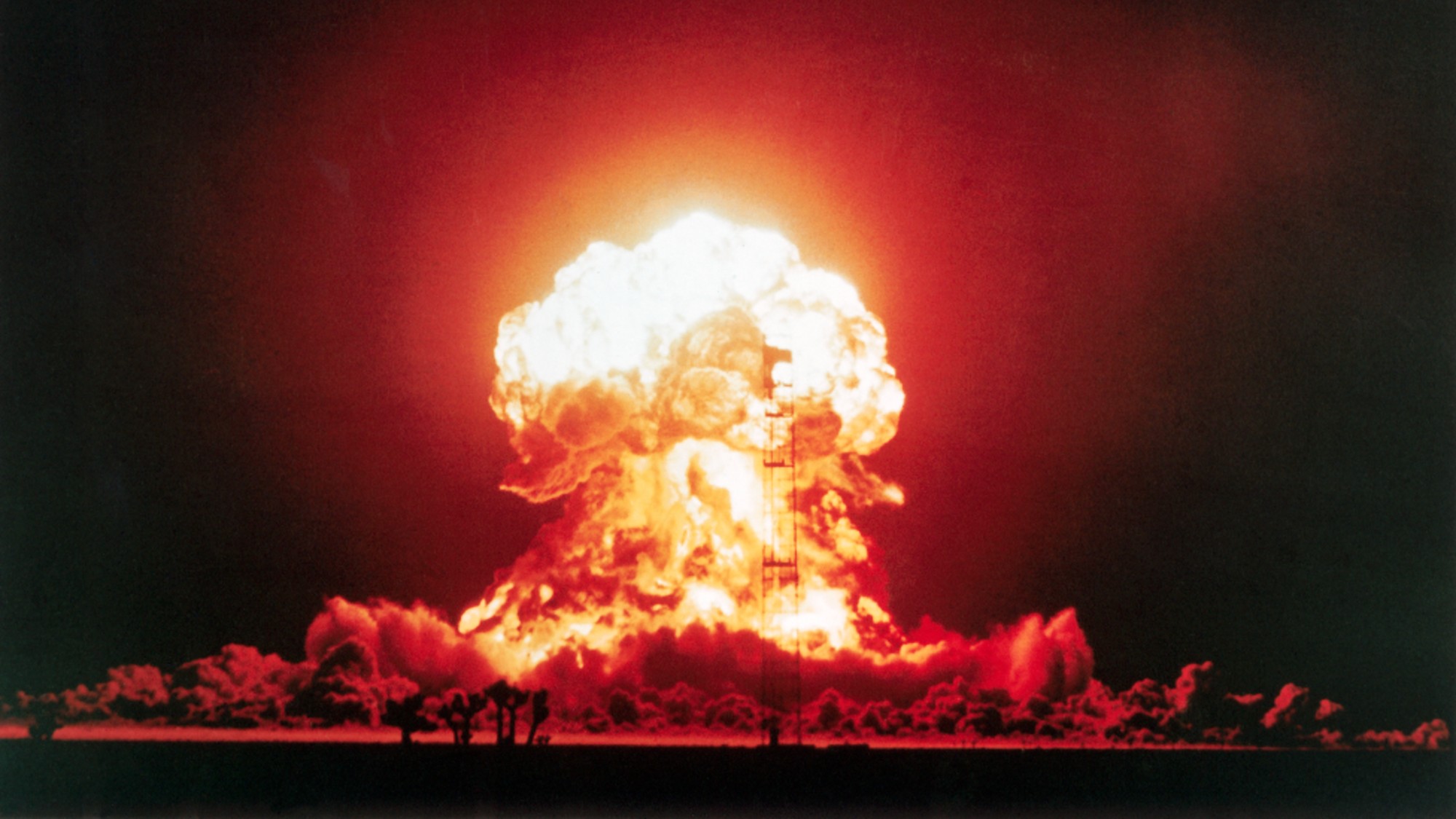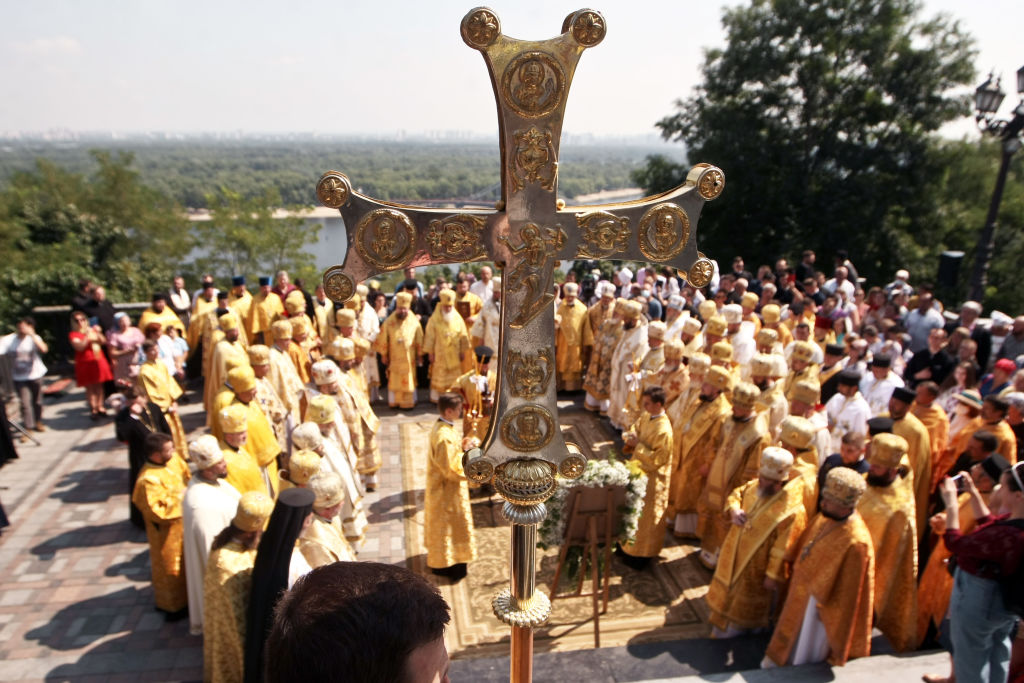How the Soviet Union fell
And why Mikhail Gorbachev’s election was the final nail in the coffin

A free daily email with the biggest news stories of the day – and the best features from TheWeek.com
You are now subscribed
Your newsletter sign-up was successful
It was 29 years ago today that Mikhail Gorbachev, one of the most globally influential politicians of the 20th century, was elected President of the Soviet Union in an uncontested election - the only ballot ever held in the Soviet Union.
Gorbachev, who had already led the country for five years as General Secretary of the Communist Party, took the newly-created office amid little fanfare - although the event was a major milestone in the introduction of individual freedoms and democracy in Russia and further afield, the election was essentially the final nail in the Soviet Union’s coffin.
Gorbachev proved to be the first and last President of the USSR. After almost seven decades as a world power, the once-mighty Communist state dissolved entirely in December of 1991.
The Week
Escape your echo chamber. Get the facts behind the news, plus analysis from multiple perspectives.

Sign up for The Week's Free Newsletters
From our morning news briefing to a weekly Good News Newsletter, get the best of The Week delivered directly to your inbox.
From our morning news briefing to a weekly Good News Newsletter, get the best of The Week delivered directly to your inbox.
While it is “impossible to pinpoint a single cause for an event as complex and far-reaching as the dissolution of a global superpower”, there were a “number of internal and external factors” that led to its ultimate demise, says Encyclopedia Britannica.
Here’s a look at how the Soviet Union fell.
Economics
For most of the Cold War, the Soviet Union rivaled the United States in economic strength, Investopedia says. In fact, “the rapid economic development that the Soviets posted in the middle decades of the century made their system appear to be a viable economic alternative”.
A free daily email with the biggest news stories of the day – and the best features from TheWeek.com
However, in the 1970s the Soviet economy began to falter, the result of low productivity, failure to encourage technological innovation and a lengthy war in Afghanistan.
By the 1980s, this stagnation had crippled the country. Excessive money printing had already sparked an inflationary spiral, before the 1986 disaster at the Chernobyl nuclear power plant - which required an enormous clean-up effort - exacerbated matters further.
But History.com claims the true death knell for the Soviet economy came with an unprecedented plunge in the value of oil, the country’s main source of revenue. Over the first half of the 1980s, prices fell from $120 a barrel to $24 a barrel.
In 1990, the Soviet Union still clung onto its status as the world’s second-largest economy, says Encyclopedia Britannica, but by now “shortages of consumer goods were routine and hoarding was commonplace”. The collapse of the Union was well underway.
Brezhnev and the collapse of ideology
In the 1920s, the political framework of Soviet Union had been dominated by ideological Communist fanatics like Vladimir Lenin and Leon Trotsky.
The University of Norwich says that a “fundamental shift” came with the ousting of Secretary General Nikita Khrushchev in 1963.
“He was the last of the Soviet leaders to work directly under the leadership of the original revolutionaries,” the university says, and following his replacement with Leonid Brezhnev “the Politburo drifted further and further from Lenin’s vision with a much more conservative approach to most problems”.
During Brezhnev’s tenure the 1960s and 1970s, the Communist Party elite acquired excessive wealth and power while millions of citizens could not afford to feed themselves. The perceived hypocrisy of the Politburo - which “imported German cars, ate expensive French food, and slept on luxurious Italian silk sheets” while espousing an economic ideal of self-sufficiency - led to discontent and resentment among the youth that would never fully abate, says History.com.
Tide of nationalism
The late 1980s and early 1990s were characterised by the sudden rise of nationalist movements in the USSR and its satellite states.
Liberalising reforms under Gorbachev allowed ethnic minorities such as Ukrainians and Georgians to “voice their opposition to Russian and communist domination and led to a growth of nationalism and regionalism”, a trend exacerbated by the ongoing economic decline, World Atlas says.
“In the Baltic republics, especially, many argued that they could run their economic affairs better than Moscow,” the site says. In 1990, Lithuania became the first Soviet republic to declare independence, followed swiftly by Latvia and Estonia.
President Gorbachev
Mikhail Gorbachev was a veteran Communist Party politician and a strong supporter of the “de-Stalinisation” that had begun under Nikita Kruschev in the 1950s.
Upon taking control of the party in March 1985, his primary domestic goals were to kick-start the sluggish economy and scale down government bureaucracy.
However, when initial reforms failed to stem the tailspin, he implemented two revolutionary government programs that both improved the quality of life for Soviet citizens and finally closed the door on the viability of the Soviet economic model.
The first, glasnost - meaning openness - reduced restrictions on media and free speech, while perestroika - meaning restructuring - introduced market forces to the economy, pushing the country towards a hybrid Communist-capitalist system, similar to that of modern China.
San Jose University economics professor Thayer Watkins suggests that Gorbachev “did not intend to dismantle the Communist system” with these reforms. But eventually, according to Encyclopedia Britannica, the “tension between the newly empowered citizenry and a Soviet state with ruined credibility proved too much to overcome, and a last gasp coup attempt [in August 1991] by Communist hardliners shattered the Soviet Union”.
The remaining republics of the Union raced for the door, fearing further coup attempts by the hardliners, and in late December a statement of official dissolution was ratified by Russia, Ukraine and Belarus.
On 25 December 1991, Gorbachev resigned as Soviet president handing power to Boris Yeltsin. The next day, all Soviet institutions formally ceased to exist - finally bringing the Soviet era to a definitive end.
-
 How Democrats are turning DOJ lemons into partisan lemonade
How Democrats are turning DOJ lemons into partisan lemonadeTODAY’S BIG QUESTION As the Trump administration continues to try — and fail — at indicting its political enemies, Democratic lawmakers have begun seizing the moment for themselves
-
 ICE’s new targets post-Minnesota retreat
ICE’s new targets post-Minnesota retreatIn the Spotlight Several cities are reportedly on ICE’s list for immigration crackdowns
-
 ‘Those rights don’t exist to protect criminals’
‘Those rights don’t exist to protect criminals’Instant Opinion Opinion, comment and editorials of the day
-
 Mutually Assured Destruction: Cold War origins of nuclear Armageddon
Mutually Assured Destruction: Cold War origins of nuclear ArmageddonIn Depth After the US and Soviet Union became capable of Mutually Assured Destruction, safeguards were put in place to prevent World War Three
-
 Vladimir Putin’s narrative of Russian victimhood examined
Vladimir Putin’s narrative of Russian victimhood examinedfeature Russian president has repeatedly pointed to his country’s history to justify Ukraine invasion